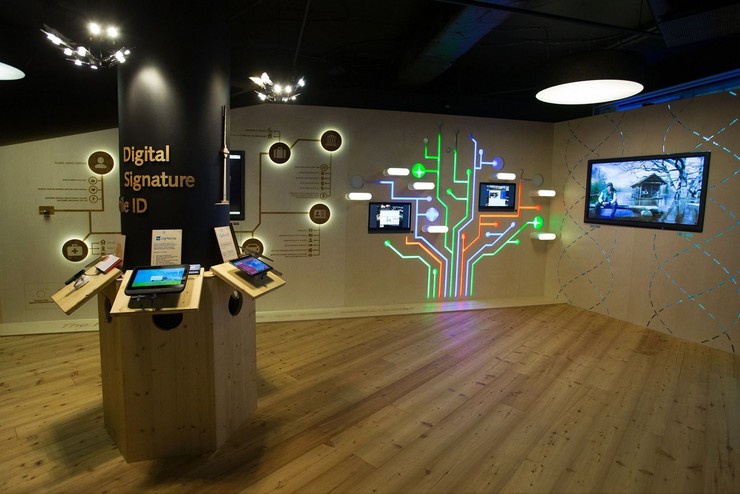
When Estonians travel or work abroad, they get easily annoyed by the amount of bureaucracy that is needed to carry out everyday tasks, with endless queuing, pointless paperwork, and tons of papers to sign with blue ink in three copies. Anyone, who has lived even a single day as an e-Estonian, would find this irritating, time consuming and wasteful. Thanks to new technologies and universal internet penetration, public services could be made more effective and simpler and that is something that is not a dream, but everyday reality in Estonia, a country which has declared access to the internet as a basic human right.
A decade or so ago Estonia decided to take a leap into digital government. Let me tell you how this has changed my everyday life. For instance, Estonia has a paperless government. Citizens can communicate with state agencies almost exclusively through online channels using digital signatures (well, not for everything, for a marriage you still have to turn up in person). By 2015, Estonians had collectively given more than 200 million digital signatures, not bad for a country of 1.3 million people. On an election day, whether it’s local, national, or EU elections, we can vote online using our ID cards or mobile IDs, wherever we are in the world and we are still the only country in the world of which this is true. I have voted from Mongolia and from the US, and I have voted from the comfort of my living room when it’s snowing outside.
Most bank branches have been closed because everyone is uing online banking. And I could set up a new company in around 10 minutes, all online, of course, with no need to present papers to any government office. Reporting my annual taxes takes me less than three minutes with any tax refund being paid into my account in a matter of days, and this online tax service is used by more than 96% of Estonians. All my medical data is online for any relevant doctor to check and I don’t have to walk around with a paper prescription if I need medicines from a pharmacy because every pharmacy has a computer. Of course I don’t need to carry my driving licence or insurance documents with me when I drive because every police car has a computer. And the list continues with hundreds of digital public services.
In Estonia the government is allowed to collect any particular piece of information from its citizens only once. When one government office has the information, it is not my responsibility to take it to any other office or department, it is the government’s own duty. With an integrated notification system across government it would not be unusual to receive a text message from the Vehicle Registration Office to remind me that my regular health check is due next month and after visiting the doctor’s surgery, my part is done, the doctor will submit the results and any government office that needs that information can access it accordingly. And if I am afraid that there might be a nosey public servant who is looking at my personal data, I can go to my personal e-Estonia page and check the full log on everyone who has accessed the data.
E-government and state-of-the-art digital public services are not only matters of convenience; they also makes sense economically. The use of digital services in Estonia saves around 2.8 million hours of work in a year. That means that every year e-services save us an amount equal to 2% of the GDP. In addition, the development of digital public services has facilitated growth of Estonia’s ICT sector. There are many ICT companies developing new digital solutions and successfully exporting these solutions abroad. Estonia’s digital success story didn’t end with Skype, it started with it, which in turn has helped us to set up a comprehensive start-up ecosystem and given us more start-ups per capita than any other country in the world. But in the end of day, the really important thing is that it just makes life so much easier and efficient, so we can spend our time on things that really matters. Since 2014, Estonia issues e-residency to foreigners, “a transnational digital identity available to anyone in the world interested in administering a location-independent business online”. So even if you are not Estonian, you can be part of the lifestyle of an ordinary e-Estonian.

